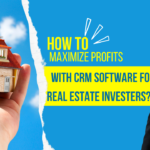In the highly competitive world of real estate, managing leads effectively is crucial for closing deals and building long-term client relationships. A robust lead management system CRM (Customer Relationship Management) is the backbone of any real estate business looking to grow and succeed. A CRM that specializes in real estate lead management helps you track, nurture, and convert leads more efficiently, providing the tools you need to manage listings, appointments, and customer relationships all in one place.
This comprehensive guide will explore the best lead management system CRMs for real estate businesses. We’ll look at the top CRM options, how they benefit real estate agents and agencies, and key features to look for when choosing the right one for your needs.
1. What Is a Lead Management System CRM?
Before diving into specific CRMs, it’s important to understand what a lead management system CRM does, especially in the context of real estate.
Key Functions of a Lead Management System CRM:
-
Lead Capture: Automatically collects lead information from various sources like website forms, emails, social media, and real estate listing portals.
-
Lead Segmentation: Sorts and categorizes leads based on factors such as location, budget, buying stage, and more.
-
Lead Nurturing: Sends automated follow-up emails, SMS messages, and reminders to stay in touch with leads.
-
Lead Scoring: Prioritizes leads based on their behavior and engagement, ensuring that agents focus on the most promising prospects.
-
Lead Conversion: Facilitates the process of converting leads into clients by streamlining communications, scheduling, and deal tracking.
For real estate agents, managing leads effectively can lead to better client relationships, increased sales, and higher overall business success.
2. Why Do Real Estate Agents Need a Lead Management CRM?
Real estate is a business that thrives on relationships and efficient communication. A lead management system CRM helps agents streamline these processes by offering several key benefits:
1. Centralized Lead Management
With a CRM, all your leads, whether from emails, calls, social media, or website visits, are stored in one centralized system. This allows agents to track interactions and follow up efficiently without missing any leads.
2. Improved Follow-Up Process
The real estate business is fast-paced. A CRM automates follow-ups with reminders, email sequences, and alerts, ensuring that no lead slips through the cracks.
3. Better Time Management
With automated tasks, reminder notifications, and streamlined workflows, agents can prioritize tasks and focus on high-value activities like property showings and client meetings.
4. Real-Time Data Insights
A CRM provides real-time data and reports, allowing agents to analyze lead performance, evaluate marketing campaigns, and track conversion rates.
5. Lead Scoring and Prioritization
A good CRM uses lead scoring to assess the likelihood of a lead converting into a customer, allowing agents to focus on the most qualified prospects.
3. Key Features to Look for in a Real Estate CRM
When selecting a lead management system CRM for your real estate business, it’s crucial to choose a tool that fits your specific needs. Here are the top features to look for:
1. Lead Capture Integration
The CRM should integrate easily with your website, social media accounts, and listing platforms (like Zillow, Realtor.com, etc.) to automatically capture leads.
2. Customizable Lead Scoring
Look for a CRM that lets you customize lead scoring based on factors like engagement, property interest, and budget to prioritize the hottest leads.
3. Automated Follow-Ups
Ensure the CRM has tools to automatically send follow-up emails, reminders, and SMS messages, keeping you in contact with prospects without manual effort.
4. Task and Calendar Management
A CRM with a built-in calendar helps agents schedule appointments, property showings, and meetings, while task management ensures follow-ups are completed on time.
5. Real-Time Analytics
Choose a CRM that provides real-time reporting and dashboards to track lead activity, sales performance, and agent productivity.
6. Mobile Compatibility
Real estate agents are often on the go, so having a CRM with mobile compatibility is essential for managing leads and appointments from anywhere.
7. Email Marketing Tools
A built-in email marketing system allows agents to send personalized newsletters, property updates, and promotional emails to nurture leads.
4. The Best Lead Management CRMs for Real Estate
Now that we understand the importance of a lead management system CRM, let’s take a look at the best CRMs available for real estate professionals. These CRMs are specifically designed to cater to the needs of real estate agents and agencies, offering powerful tools to capture, nurture, and convert leads.
1. Salesforce for Real Estate
Salesforce is one of the most well-known CRMs across industries, and it’s highly customizable for the real estate sector. It offers robust lead management features such as customizable lead capture forms, automated follow-up emails, and integrations with marketing tools like email campaigns and social media platforms.
Key Features:
-
Lead capture from multiple channels
-
Automated lead nurturing with email templates
-
Customizable reports and dashboards
-
Advanced lead scoring and segmentation
-
Integration with MLS (Multiple Listing Service)
Why It’s Great for Real Estate: Salesforce’s ability to customize processes, from lead capture to deal closing, makes it ideal for large agencies and teams who need a scalable solution.
Resources:
2. HubSpot CRM for Real Estate
HubSpot is a popular CRM known for its ease of use and free tier, which makes it a great option for smaller real estate agencies or individual agents. The CRM provides lead management tools, email automation, and a pipeline for tracking leads as they move through the sales cycle.
Key Features:
-
Free CRM with lead tracking and management
-
Email marketing and lead nurturing tools
-
Workflow automation and task management
-
Integration with website and landing page forms
-
Analytics and reporting
Why It’s Great for Real Estate: HubSpot’s user-friendly interface and scalable features make it ideal for startups or agents who are just starting to build their business.
Resources:
3. Follow Up Boss
Follow Up Boss is a real estate-specific CRM designed to help agents streamline their follow-up process. It offers robust lead management tools, including automatic lead capture, task reminders, and a built-in dialer for phone calls.
Key Features:
-
Lead capture from website and listing platforms
-
Automatic lead assignment to agents
-
Built-in dialer for phone follow-ups
-
Customizable email templates for quick responses
-
Reporting and lead tracking
Why It’s Great for Real Estate: Follow Up Boss is designed with the real estate agent in mind, offering easy-to-use tools that focus on improving follow-up and communication.
Resources:
4. Zoho CRM for Real Estate
Zoho CRM is a versatile CRM platform that can be tailored for real estate businesses. It offers a full suite of features, including email marketing, automated workflows, and lead management. Zoho CRM integrates seamlessly with other Zoho apps, providing a comprehensive solution for real estate agencies.
Key Features:
-
Lead capture and management from multiple sources
-
Automation tools for follow-ups and reminders
-
Customizable lead scoring and workflows
-
Integration with third-party real estate apps
-
Analytics and reporting
Why It’s Great for Real Estate: Zoho’s flexibility and ability to integrate with other apps makes it a great choice for agencies looking for a comprehensive, all-in-one solution.
Resources:
5. Real Geeks
Real Geeks is a CRM platform specifically designed for real estate professionals. It offers lead generation tools, automated follow-up, and a real estate-specific dashboard that helps agents manage their leads and contacts effectively.
Key Features:
-
Lead capture forms and landing pages
-
Automated follow-up emails and text messages
-
Real estate-specific reports and dashboards
-
Integration with MLS and other listing services
-
Drip email campaigns for lead nurturing
Why It’s Great for Real Estate: Real Geeks is tailored specifically for real estate agents, offering tools that streamline the lead-to-client conversion process.
Resources:
6. LionDesk
LionDesk is a real estate CRM that provides tools to capture leads, automate follow-ups, and stay in constant contact with clients. It also integrates with email, video, and text messaging, making it an excellent option for modern agents.
Key Features:
-
Lead capture from websites and social media
-
Automated emails, text messages, and video messages
-
Task and reminder management
-
Drip campaigns and lead nurturing
-
Customizable reporting and analytics
Why It’s Great for Real Estate: LionDesk’s video messaging feature is a unique selling point that sets it apart from other CRMs in the real estate industry.
Resources:
5. How to Choose the Best Real Estate CRM for Your Business
Choosing the right CRM for your real estate business depends on various factors such as your budget, team size, and specific needs. Here are some key considerations when evaluating a CRM:
-
Cost: Some CRMs offer free plans or tiered pricing, while others are premium solutions with additional features.
-
Ease of Use: Choose a CRM that’s user-friendly and doesn’t require extensive training.
-
Customization: Ensure the CRM can be tailored to your business needs and integrates with other tools.
-
Scalability: If your real estate business is growing, make sure the CRM can scale with your needs.
6. Conclusion
A solid lead management system CRM is essential for real estate businesses looking to streamline their sales process, improve lead conversion rates, and stay competitive in the market. The CRMs mentioned in this article—Salesforce, HubSpot, Follow Up Boss, Zoho CRM, Real Geeks, and LionDesk—are some of the best options available for real estate agents and agencies. Each CRM offers unique features that can help you automate and manage your lead generation, follow-up, and conversion processes more effectively.
Choosing the best CRM for your real estate business will depend on your specific requirements, team size, and budget. With the right CRM in place, you’ll be able to focus on what matters most—building relationships, closing deals, and growing your business.













